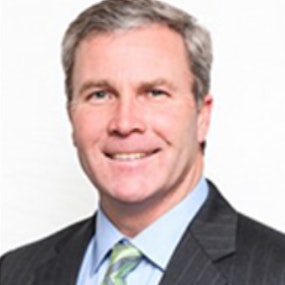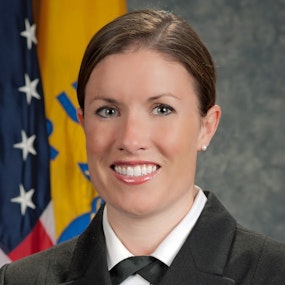ROBERT JOHNSON:
This is the award-winning Public Health Review Morning Edition for Tuesday, July 18, 2023. I'm Robert Johnson. Now, today's news from the Association of State and Territorial Health Officials.
ERIC COTE:
It can be really terrifying for someone who depends on life support equipment in their home to go through a power outage.
JOHNSON:
Eric Cote is an ASTHO consultant and the founder of Power Outage Partners.
COTE:
This loss of electricity can stop certain devices. And for other devices that have internal battery capacity, they will switch over to battery capacity during an outage, but this battery capacity is limited. And in some cases, it's very limited to less than an hour of runtime.
JOHNSON:
Cody worked with ASCO to develop a toolkit that gives agencies the information they need to better serve people who depend on electricity to power their life-saving medical devices.
COTE:
And in that toolkit, jurisdictions will be able to understand how to effectively use the federal emPOWER database to help them get a better sense of how many life support patients are living in their jurisdiction. And of course, there are other resources detailed in the toolkit that will help jurisdictions bolster the numbers they get from the federal emPOWER database to include other databases such as the state's Medicaid roles or private insurance roles to get a better sense of the total population of life support patients living in a jurisdiction.
JOHNSON:
Cote will introduce and explain the new toolkit during an ASTHO webinar on Wednesday, July 26. You can sign up using the link in the show notes.
New Physical Activity Guidelines are now available. The report from the US Department of Health and Human Services is focused on older adults. Dr. Katrina Piercy led the team that wrote the guidelines.
KATRINA PIERCY:
So, the idea is to emphasize the importance of this population and really highlight strategies and settings that work to increase physical activity among older adults.
JOHNSON:
Piercy says older Americans are behind others when it comes to meeting the nation's physical activity recommendations.
PIERCY:
There's tremendous mental, physical, social, and economic benefits of physical activity for older adults. And so, we really wanted to highlight this population and some opportunities for them to do it. And also to really reinforce the message that it's never too late to get started with activity.
JOHNSON:
The report examines the barriers that make it tough for older adults to get the exercise they need. It's written for anyone working with this population.
PIERCY:
So, when we think about who the audience is for this report, we're thinking about policymakers, exercise and health professionals, clinicians, gerontologist, built environment professionals, local, state, territorial and tribal leaders, and others working with older adults all can play a role to find opportunities to help increase activity for older adults.
JOHNSON:
You can download the report using the link in the show notes.
Also today, when weather turns extremely hot, or heavy rain causes severe flooding, public health can become a problem, too. Leaders in Washington State are working to address climate and equity concerns. You can hear more on a recent episode of the Public Health Review podcast. Listen everywhere you stream audio or click the link in the show notes.
Finally, this morning, stay connected to changes in public health policy by signing up for ASTHO's legislative alert emails. You can join the list using the link in the show notes. Also, if you have a minute, be sure to leave us a review, we'd really appreciate it.
That'll do it for today's newscast. We're back tomorrow morning with more ASTHO news and information. I'm Robert Johnson. You're listening to the award-winning Public Health Review Morning Edition. Have a great day.






